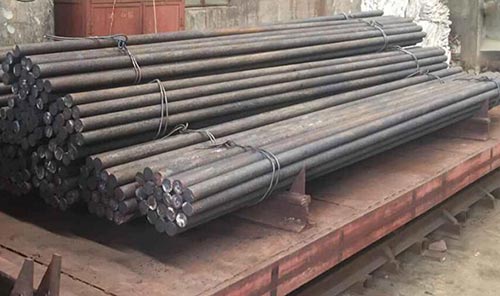Top Grinding Rods for Industrial Use – Improve Your Grinding Ope
A grinding rod is an essential tool in industries such as mining, metallurgy, and cement production. It plays a key role in grinding down materials into finer particles, facilitating various production processes. Selecting the right grinding rod can impact the efficiency, quality, and cost-effectiveness of your operations.
The Purpose and Function of a Grinding Rod
Grinding rods are cylindrical steel bars used in rod mills, a type of grinding mill that utilizes rods instead of balls to grind and reduce materials. These rods apply the necessary pressure and friction to crush or grind ores and other materials into finer particles. Unlike grinding balls, grinding rods provide uniformity and consistency, making them ideal for coarse grinding and bulk processing.
Key Benefits of Using Grinding Rods in Industrial Processes
Grinding rods offer several advantages, including:
· Enhanced Efficiency
The uniform shape and size of grinding rods make them highly efficient for continuous grinding applications, reducing downtime.
· Consistent Output
Grinding rods allow for an even and controlled grinding process, resulting in more uniform particle sizes, essential for quality control in various industries.
· Durability
High-quality grinding rods are designed to withstand high impact and wear, which is crucial for industries that operate in high-stress environments.
Factors to Consider When Choosing a Grinding Rod
To get the best performance, it’s essential to choose grinding rods that match your specific requirements. Here are key factors to consider:
· Material Composition
Grinding rods are often made from steel or alloyed metals. High-carbon steel and alloyed grinding rods are ideal for durability and effectiveness, as they resist wear and deformation during grinding.
· Length and Diameter
The size of the grinding rod should be compatible with your rod mill. Generally, longer rods are preferred for larger mills, while smaller mills benefit from shorter rods. A rod that is too long or short for the mill can cause operational inefficiencies.
· Hardness and Strength
Harder rods offer longer life and greater efficiency in grinding, but they must be balanced with the specific hardness of the material being ground. Choose a rod that can withstand the abrasiveness of the materials for optimal results.

Applications of Grinding Rods Across Industries
Grinding rods are crucial in several industries, including:
· Mining
In mining, grinding rods help break down ores and minerals to facilitate further processing and extraction of valuable metals.
· Cement Manufacturing
Cement production requires fine grinding of raw materials. Grinding rods help achieve the fine particle sizes needed for cement quality.
· Chemical Processing
Certain chemical processes rely on fine grinding of raw materials, and grinding rods offer the consistency and efficiency needed for these applications.
· Metallurgy
Grinding rods assist in reducing materials into fine powders, necessary for metalworking processes such as smelting and alloying.
Maintenance Tips for Maximizing Grinding Rod Life
Regular maintenance is essential for extending the life of your grinding rods and ensuring optimal performance:
· Inspect Regularly
Check rods for signs of wear, deformation, or cracking. Replacing worn rods in time helps maintain the quality of the grinding process.
· Monitor Rod Length
Grinding rods wear down over time, so it’s essential to replace them when they become too short to perform effectively.
· Balance Rod Charge
Ensure that your mill has the right quantity of grinding rods. An imbalanced load can reduce efficiency and cause faster rod wear.
Conclusion
Grinding rods play a vital role in industrial processes, from mining to cement production, by facilitating efficient and consistent grinding. Selecting the right grinding rod involves evaluating factors like material, size, and durability to match your application needs. With proper maintenance, grinding rods can offer long-term reliability, making them a valuable asset for any production line.





